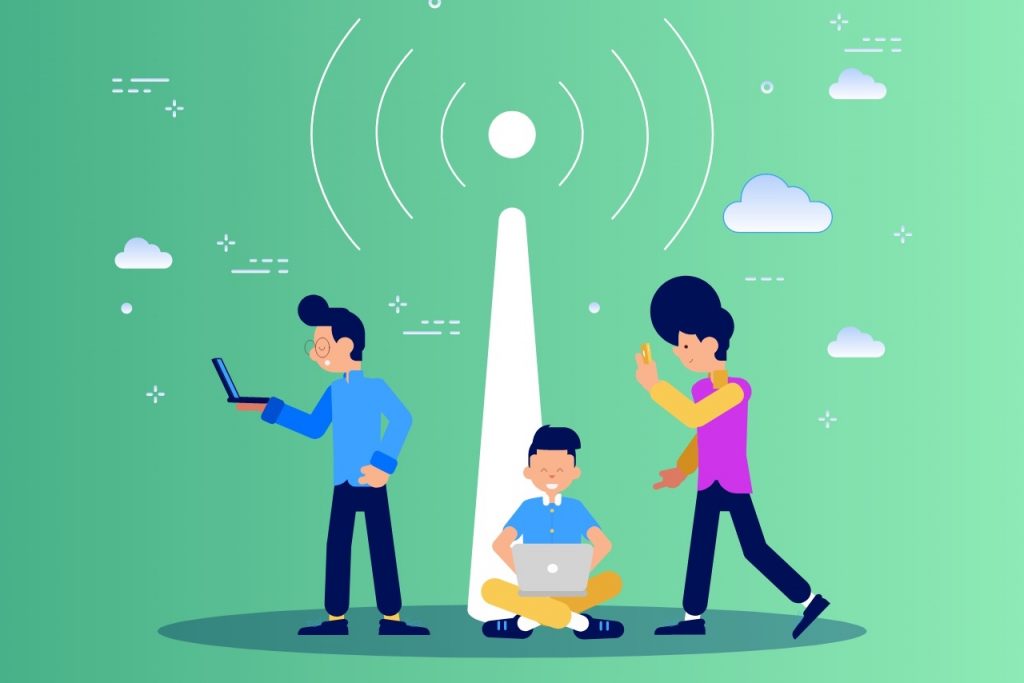Amazing Public WiFi Facts You Should Know
The 10 facts about WiFi that you perhaps didn’t know-
1. Open Networks
Connecting to open public networks sometimes can be a dangerous thing to do. When heading to the neighborhood library, or while sitting in your hotel room, you have access to free public Wi-Fi, but you can also be connected with who knows how many others. Putting yourself in these types of situations can eventually get you into trouble if someone decided to tunnel their way into your computer’s data. Before connecting to anything public, you should politely ask the owner of the network if the connection is encrypted and secure.
2. Virtual Private Networks
Having a program that can scramble all the information going in and out of your computer or phone can be a big help than you think. With an excellent virtual private network, you can encrypt your connection to an open public Wi-Fi and make it so nobody can detect you. Having such a feature can help block hackers from getting into your system. VPNs also allow you to bypass content restrictions imposed by network administrators, or geo-location restrictions that you may encounter when traveling abroad, as not all websites are available worldwide.
3. Secure SSL Encryptions
Did you know there are millions of un-encrypted websites floating about that can potentially be dangerous to your computer’s health when visiting on an unsecured public Wi-Fi network? To make sure sites are secure (when using Google Chrome), always take a look for a green lock on the address bar. It can indicate whether the site is safe to put personal information on or not. Never place personal data on unsecured sites for your safety.
4. Personal Firewall
Taking the time to set up the firewall on your computer can be a very annoying task but can be valuable for your online travels. What it provides is very low-level protection (when using the standard OS firewall) and can help warn you about malicious intrusions. Having a third party firewall can be more beneficial when it comes to protection but can also be a little harder to set up.
5. Sharing Files
Make sure always to turn off Network Discovery and File Sharing in public. It can prevent any type of accidental file sharing, also leakage of private data. When attempting to shut off these features on a Windows OS, go into your control panel to access the majority of options available to you.
6. Email Complexity
Taking a few minutes of your time to change email passwords and creating something a little complex can help you in the long run. When connecting to public Wi-Fi, someone can have access to your data, which means emails, accounts, pictures, etc. Changing your passwords after being connected to an unsecured network can be a wise thing to do.
7. Money Transfers
Never use any websites like PayPal, banks, and online game wallets when left open. As stated earlier, being on the same network with dozens of others can be risky, so staying away from vital information would be a smart thing to do till you get home and connect to a secure network.
8. Anti-Virus
With so many available to us today, we can easily choose one just to add the extra layer of comfort we need when using a public Wi-Fi connection. It can let you know ahead of time if someone might be attempting to connect to you, or if you somehow contracted any type of malicious bugs from unsecured websites. It can be the added security you need and a powerful one at that.
9. Turn off Wi-Fi
When sitting on a public network, make sure to turn off the Wi-Fi feature when not in use. It is just a bonus for your computer not to contract anything without you noticing. While you are at it, turn off the Bluetooth feature as well, this is just another file-sharing connection you don’t need publicly.
10. Mobile Phones
Did you know mobile phones have no way of letting you know what sites could be secured or not? It is not a very safe choice to use on an open network. Please stay away from any money transfer applications or applications that may have detailed information about the user. Another option could be using a mobile virtual private network for use; this can be secured to an extent. The issue with mobile phones is they do not have several security options as a personal computer. Take all these WiFi facts into consideration and protect yourself the next time you have a coffee at the local café or have to make a quick stop to pick up a book at the library. I hope we can all keep progressing and stop such invasions in the future permanently.
